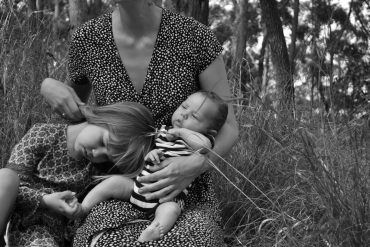The bright side of high sensitivity:
Humour and joy
Highly sensitive children typically feel the full range of human emotion more deeply than their less sensitive peers. When we think of someone being emotionally sensitive, we tend to think of someone who cries easily. While it is true that highly sensitive children do tend to cry more easily than other children, they often also have a clever sense of humour and can laugh easily, too. According to Elaine Aron, Ph.D., being an emotionally reactive child means having the capacity to experience more happiness, joy, satisfaction, contentment, and ecstasy, not just the unpleasant feelings.
Thoughtful and reflective
Highly sensitive children have a tendency to think about things deeply and ask a lot of thought-provoking questions. They may be described as “thoughtful”, “conscientious”, and “reflective” by others.
Whereas some children are impulsive – acting first and thinking later – highly sensitive children have a tendency to pause and reflect before acting.
Sometimes this behaviour can be misinterpreted as shyness. While a highly sensitive child can also be shy, often, they are not, they are simply observing the situation from the sidelines and will join in themselves when (and if) they feel ready.
Highly empathic
Highly sensitive children tend to have a greater capacity for empathy. In my work with highly sensitive clients, I frequently witness the high level of empathy that sensitive children (and adults) have for other people, animals, and the planet. They tend to notice when others are in pain or suffering and are often concerned about social justice issues, animal welfare, and environmental issues.
Sensing the subtle
Highly sensitive children typically notice subtleties in their environment that others seem to miss (a butterfly in the school yard, the toast starting to burn in the toaster, the need to change the temperature or lighting in a room) and help to make others more aware of these subtleties, too.
Sensitive children are particularly attuned to the emotions of others and tend to notice even slight changes in others’ moods.
This awareness can contribute to highly sensitive children being empathic, intuitive, and nurturing friends and siblings, particularly when they are raised in nurturing environments.
We can help highly sensitive children (and adults) to embrace their temperament by reminding them of the bright side – the unique gifts – of their sensitivity. Like most people, highly sensitive children can be their best and truest selves when they grow up in supportive and nurturing environments where they feel loved, appreciated, and accepted as they are.
Rachel Samson, M. Psych (Clinical) is a Clinical Psychologist with Advanced International Certification in Schema Therapy. She is the co-founder and director at the Centre for Schema Therapy Australia, a private psychology practice and online clinic based in South Australia. She is passionate about helping people to understand the important role of emotions in their life and has a special interest in the trait of high sensitivity. You can find her on Instagram and Facebook.










